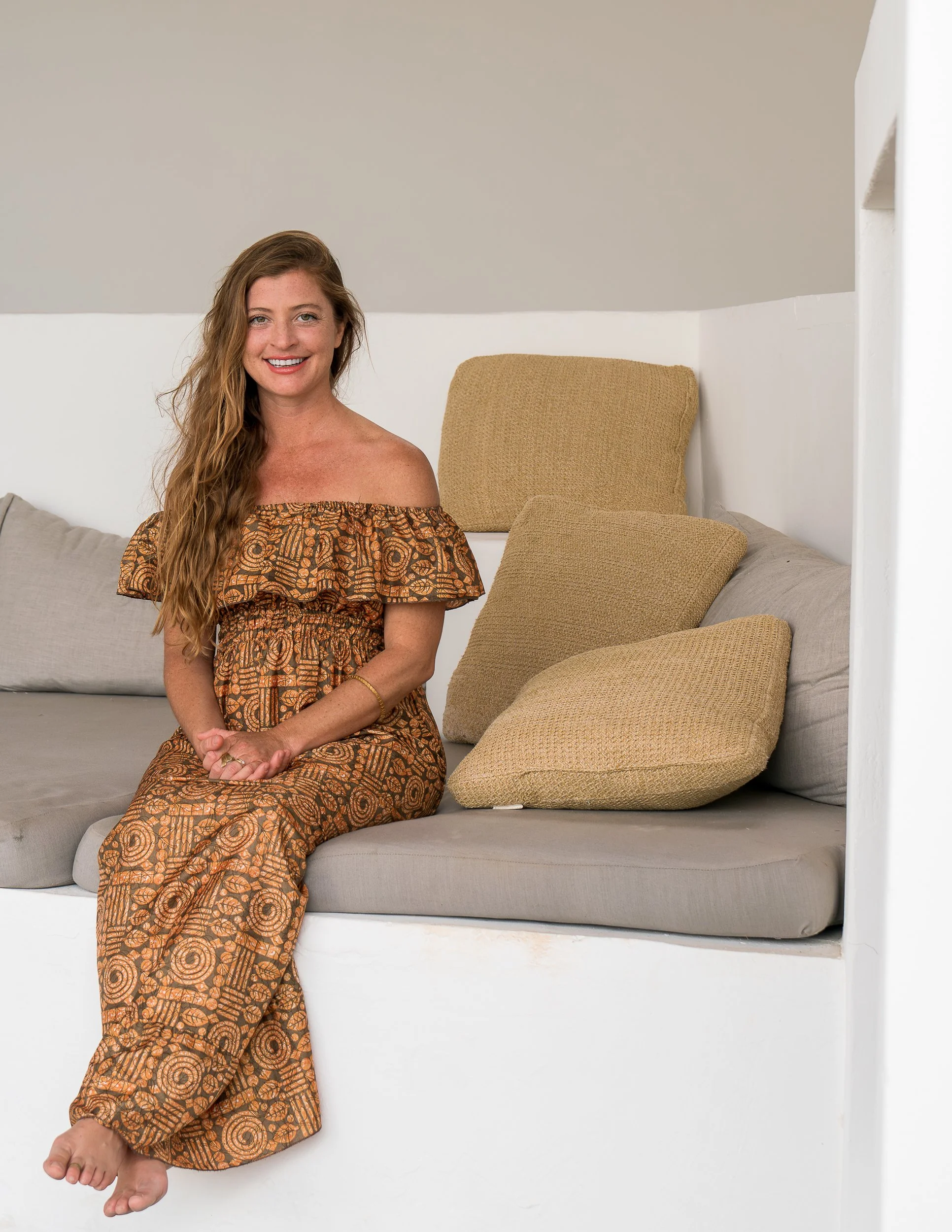Supreme release yoga therapy: Deep decompression & nervous system relief
CONTEMPLATION: “When you are safe and held, allow yourself to feel safe and held. Let it leave an imprint. This is an imprint that can resolve past imprints of ANXIETY or groundlessness. When you are safe and held, notice it, and feel it.”
Position #1
Prone Resting Postion
Instructions:
Stack 4-6 thicker blankets vertically or couch cusion
Line up blankets to create an evenly stacked ledge
Lay down with hip flexors on the edge
Turn your head to either direction
Relax your arms wherever they are comfortable
Let go progressively into support of props and ground
Benefits:
Quiets your mind and nervous system
Release of lower back and psoas muscle
Lying face down can feel very safe and comforting
Settles anxiety and overthinking
Can induce profound relaxation and tiredness
Position #2
Supine Alternate Leg (Apanasana) 1 minute
Instructions:
Begin with your legs up on a chair, couch or ottoman
Bring knees in and hold them together
Hold your left knee and extend your right leg back onto the prop
Continue to use your hands and arms to hold your left knee away from your chest with your heel resting on the prop
Let your legs and hips melt into support
Benefits:
Calm the mind & nervous system
Release of musculature around the tailbone: coccygeus and levator ani muscles, hip joints
Improves circulation and constipation
Relieves pain
Releases worry and promotes a sense of safety
Position #3
Supine Medial Alternate Leg (Medial Apanasana) 1 minute
Instructions:
(Direct transition from previous position) use your arms to bring your leg across the midline of your body so that your knee points towards your opposite cheek
At that medial angle, keep your heel resting on the chair, and guide your knee towards your chest a few inches
Use hand strength to hold knee at this angle, don’t pull
If there's a "gap" between your lower legs, slide your foot to touch the extended leg
Let your legs and hips melt into support
Benefits:
Release of the musculator attached to the sacrum segment of the spine
Supports a letting go or “allowing” process
Improves emotional stability, and quiets the mind
Low back pain relief
Can resolve intimacy issues
Position #4
Supine Alternate Leg Left Side (Apanasana) 2 minutes
Instructions:
(Direct transition from previous position) use your arms to guide your thigh slowly back to it’s own lane
Push your knee away from you a bit, so your thigh is almost vertical
Continue to use your hands and arms to hold your left knee away from your chest
Let your thigh bone lean into and through all the musculature of your pelvis
Position #5
Supine Medial Alternate Leg (Medial Apanasana) 2 minutes
Instructions:
(Direct transition from previous position) use your arms to bring your leg across the midline of your body so that your knee points towards your opposite cheek
At that medial angle, keep your heel resting on the chair, and guide your knee towards your chest a few inches
Use hand strength to hold knee at this angle, don’t pull
If there's a "gap" between your lower legs, slide your foot to touch the extended leg
Let your legs and hips melt into support
Now, repeat Positions #2-5 on your right side
Position #6
Supine Spinal Twist (Jathara Parivrittanasana) 3-10 minutes
Instructions:
Curl up on your left side and bend your knees so you are in the fetal position, your head can rest on the ground or a folded blanket
Extend the leg closest to the floor straight-ish and back-ish, while bending your other knee so it can contact your forearm on the ground
Bend your top elbow and place your hand on your waist
Let gravity twist you back, head looking toward your bent knee, melt with gravity
Benefits:
Deep release for ribcage, tension between shoulder blades, possible release of whole spine
This variation gives psoas release
Settles emotions, it’s a safe place to feel feelings and process things
Especially beneficial for overwhelm, fatigue, anxiety or a hyperactive mind






